 | Roswell Chamberlain Smith - Arithmetic - 1830 - 286 pages
...Progression there are reckoned 5 terms, any three of which beltig given, the remaining two may be found, viz. 1. The first term. 2. The last term. 3. The number of terms. The first term, the last term, and the number of termr-, being given, to und the common difference;... | |
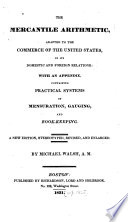 | Michael Walsh - 1831 - 348 pages
...16=8X8=64. In Geometrical Progression the same five things are to be observed, as in Arithmetical, viz. 1. The first term. 2. The last term. 3. The number of terms. 4. The equal difference or ratio. 5. The sum of all the terms. NOTE. As the last term in a long series of... | |
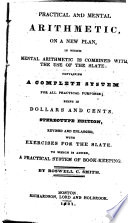 | Roswell Chamberlain Smith - Arithmetic - 1831 - 288 pages
...Arithmetic*. Pir» creaaiun, any three of them being given, the oihttr two may bo found, vift. 1. 77if 'first term. 2. The last term. 3. The number of terms. 4. The sum of all tht terms. 1. A man purchased n flock of sheep, consisting of 9 ; and, by agreement, was... | |
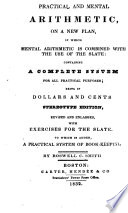 | Roswell Chamberlain Smith - Accounting - 1832 - 296 pages
...reckoned 5 terms, any three of which being given, the remaining two may be found, viz. 1. The ßrst term. 2. The last term. 3. The number of terms. 4. The common difference. 6. The sum of all the terms. The first term, the last term, and the number of terms,... | |
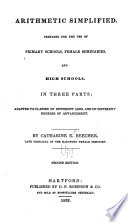 | Catharine Esther Beecher - Arithmetic - 1833 - 296 pages
...rules for finding them ? any three of the five following terms be given, the other two may be found. 1. The first term. 2. The last term. 3. The number of terms. 4. The common difference. 5. The sum of all the terms. 1. A man bought a piece of cloth containing 12 yards,... | |
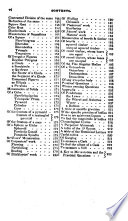 | James L. Connolly (mathematician.) - Arithmetic - 1835 - 264 pages
...terms, and the product will be the answer. The five things in progression are numbered as follows : 1. The first term. 2. The last term. 3. The number of terms. 4. The common difference. 5. The sum of all the terms. EXAMPLES. 1. How many strokes does a clock strike in... | |
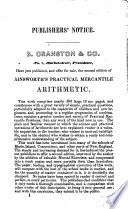 | Luther Ainsworth - Arithmetic - 1837 - 306 pages
...the series. Q. How many parts are always included in an arithmetical series ? «,* I A. Five parts, viz.: 1. The first term. 2. The last term. 3. The number of terms. 4. The common difference. 5. The sum of all the terms. Q. What is meant by the extremes of a progression ?... | |
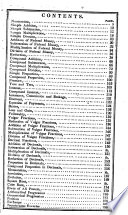 | Arithmetic - 1838 - 218 pages
...series the ratio is 2, and in the second 3. There are five things to be considered in any geometrical progression, viz. 1. The first term. 2. The last term....-The number of terms. 4. The ratio. 5. The sum of all the terms I CASE 1. The first term, the ratio, and the number of terms being given, to find the... | |
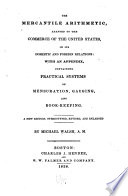 | Michael Walsh - Arithmetic - 1838 - 346 pages
...2X32=4X16=8X8=64. In Geometrical Progression the same five things are to be observed, as in Arithmetical, viz. 1. The first term. 2. The last term. 3. The number of terma 4. The equal difference or ratio. NOTE. As the last term in a long series of numbers, is very... | |
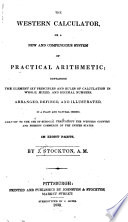 | Joseph Stockton - Arithmetic - 1839 - 216 pages
...continually, by the divisor 2. In geometrical progression there are five things to be carefully observed. 1. The first term, 2. The last term, 3. The number of terms, 4. The ratio, 5. The sum of all the terms. To find the last term, and sum of all the series in geometrical progression, work by... | |
| |